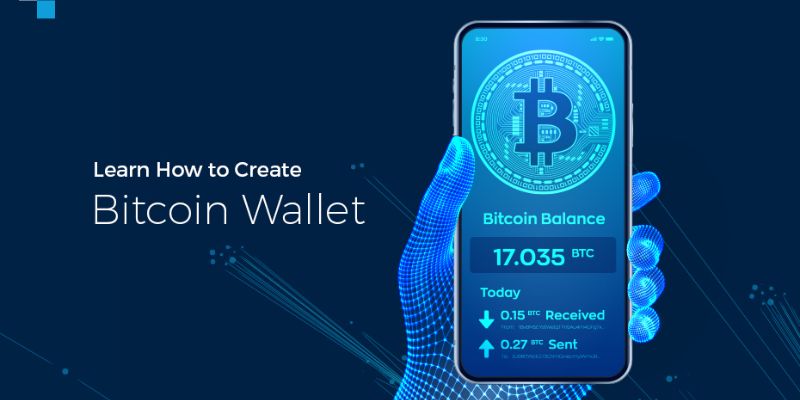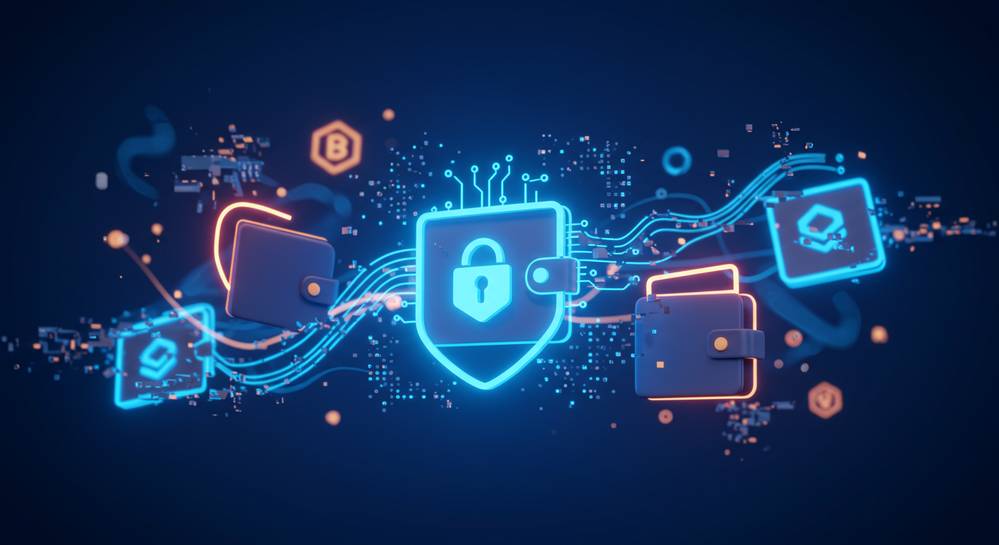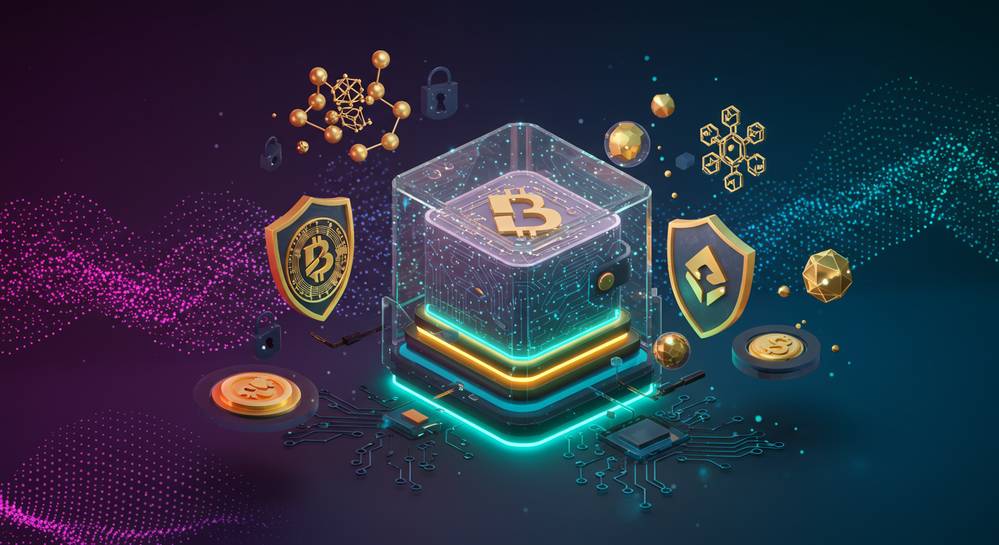Create a Bitcoin wallet — sounds daunting, right? It shouldn’t be. Think of it as crafting a digital cash vault, where your investment is just a click away and as secure as Fort Knox. We’ll cut through the tech-speak and guide you on choosing the well-suited vault for your needs, setting it up without breaking a sweat, and making sure it’s locked tight. We’ll even show you how to use it like a pro, ensuring every coin in your stash stays safe and sound. Ready to take control of your digital gold? Let’s build that vault.
Choosing the Right Bitcoin Wallet for Your Needs
Understanding the Different Types of Bitcoin Wallets
Let’s talk wallets, but not the kind you might stick in your back pocket. First, know this: a bitcoin wallet is like a digital safe for your Bitcoin. There are many kinds to choose from. We have hardware wallets—think of a high-tech USB stick. These keep your Bitcoin offline, making them tough nuts to crack. Next, there are software wallets. They live on your computer or phone and are super handy. You can pick from a desktop wallet, which lives on your computer, or a mobile wallet that goes wherever your phone goes.
Online wallets are there too. But they need more care to keep safe. Cold storage keeps your Bitcoin offline and away from danger while hot wallets are connected to the internet, ready for daily use. Imagine hardware wallets and paper wallets as your bank’s safe deposit box, and mobile and software wallets as the cash you carry in your pocket.
Now, multisig wallets add a team-up feature. They need more than one person to say ‘yes’ before any Bitcoin moves. This is like having a double-keyed safe. And wallet encryption? It’s like putting a secret code on your cash vault. For all these wallets, private key management is key—literally. It’s your proof you own the Bitcoin. So keep it secret, keep it safe.
You’ll also hear about two-factor authentication, or 2FA for short. It’s like needing both a key and a fingerprint to get into your wallet—a smart move for any kind you choose.
Choosing one depends on your needs. Ask yourself: Do I want more security? Or do I want easy access? The perfect wallet for you balances both.

Assessing Security and Convenience in Bitcoin Wallet Selection
Now that you know the types, let’s find you the best fit. If you’re always on the move, a mobile bitcoin app might be your best buddy. But if you’re stashing your Bitcoin for the long haul, a hardware bitcoin wallet or a paper wallet could be better. Remember, though, paper can tear, and electronics can fail. So, backup your wallet. A simple pen and paper can save your digital gold.
To set up your wallet, make it strong. Encrypt it with a robust password. Think of your favorite song, pull out an odd lyric, and mix in some numbers and symbols. Voila! You’ve got yourself a password.
Need to recover a wallet? It’s not the end of the world. With a backup phrase, often called a seed phrase, you can bring your wallet back from the digital depths. Write down the seed phrase and put it someplace like a real vault or a locked drawer.
When you’re ready to send and receive Bitcoin, check a few times to make sure the address is correct. Mistakes can mean saying goodbye to your Bitcoin. Double-checking is always easier than fixing a whoopsie.
Your wallet needs to mesh with your life. Will you use a Bitcoin ATM? Get a wallet that works with ATMs. Watching your budget? Check those transaction fees and limits. They can bite if you’re not careful.
In the end, the best bitcoin storage solution fits how you live and how you spend. You’ve got your checklist: security features, backup needs, convenience, cost, and how you’ll use it. Choose wise, and that wallet will become your trusty sidekick in the digital age.
Setting Up Your Bitcoin Wallet
The Process of Secure Bitcoin Wallet Installation
Let’s get you started with setting up your very own bitcoin wallet. First, you need to decide which type of wallet you want. If you want one that’s like a safe, a hardware bitcoin wallet is best. For something on your computer, pick a desktop wallet. Like to be on the go? A mobile bitcoin app suits you. Or, choose an online wallet for easy access.
Now, install your chosen wallet. For hardware, plug the device into your computer and follow the setup guide. For software wallets, download from a trusted provider and install it. Remember to make sure your computer or phone is secure before installing anything. For a good mobile or desktop wallet, just a few clicks and you’re done!

Key Considerations in Private Key Management and Encryption
Your private key is like the secret code to your money. You must keep it safe. Always encrypt your wallet with a strong password. Don’t worry, it’s just a fancy way of saying ‘lock it really well’. And use two-factor authentication, adding an extra security step for peace of mind.
Next, let’s talk about backing up your wallet. A good backup means you can recover your bitcoin wallet if something bad happens to your device. So, do it now, and keep that backup in a different place. Some people even make a bitcoin paper wallet, like a printout of their keys, as a backup.
Always be careful when you send and receive bitcoin. Double-check everything because mistakes can’t be undone. And don’t forget, protect your wallet from peeping eyes. Keep that wallet seed phrase, a kind of backup secret phrase, out of other people’s reach.
For everything—whether it’s a simple mobile bitcoin app or a fancy hardware wallet—the rules are simple: Keep it secure, back it up, and handle it with care. Select a wallet, set it up, and make sure it’s as safe as houses, or well, your money.
Securing Your Bitcoin Investment
Implementing Advanced Security Measures
To protect your bitcoin, you must use solid security. Start with a strong password. Use random letters, numbers, and symbols. Next, enable two-factor authentication. This adds an extra check to confirm it’s you. Choose a hardware wallet for the best security. It stores bitcoin offline, away from hackers.
Remember, cold storage is your friend. Keep most funds offline. Hardware wallets work well for this. Paper wallets are an option, too, but can be less user-friendly. Always encrypt your wallet. This way, prying eyes can’t get to your funds. Choose a wallet that supports encryption.
Avoid keeping a lot in hot wallets. These are online and riskier. Use them for small, daily amounts. Multisig wallets need more than one key to use funds. This is good for shared control. Let’s say you’re using a mobile bitcoin app. Make sure it has strong security features too.

Backup Strategies and Recovery Processes for Your Bitcoin Wallet
Always back up your wallet. You could lose access otherwise. You’ll need your backup to recover your wallet. Write down your seed phrase. It’s a list of words that lets you rebuild your wallet. Keep it in a safe place. Don’t store it on a computer without encryption.
Have several backups in different places. Think about using a safe deposit box. Secure public address use is important, too. Double-check addresses before you send bitcoin. And never share your private key. That’s a no-go.
If you lose access, don’t panic. With your backup, you can recover your wallet. Use your seed phrase for this. Be careful where you type it. Make sure it’s the real wallet app or site. Scammers might try to trick you.
Lastly, keep your software updated. Wallet providers release updates for a reason. They protect you from new threats. Be sure to apply these updates to your software wallet. This goes for mobile too.
By following these tips, you can rest easy. Your bitcoin will be safe. Remember, good habits mean everything in cryptocurrency safety. Stay informed and stay secure.
Utilizing Your Bitcoin Wallet Effectively
Conducting Transactions: Sending and Receiving Bitcoin Securely
When you set up a bitcoin wallet, you take a big step. You’re entering the world of digital currency. Security is key here. To send bitcoin, you need the receiver’s public address. It’s like an email address, but for bitcoin. For top-notch security, always double-check this address. One wrong character could mean sending bitcoin into the abyss.
Receiving bitcoin is easier. You just share your own public address. But keep it safe, like you would a home address. Smart folks only use their address once. They know privacy is crucial. Do this, and hackers will have a tough time tracking you.
Make sure to use secure networks when managing crypto. Public Wi-Fi can be a hacker’s playground. Always log into your wallet privately.
Maintaining Digital Wallet Privacy and Address Safety
Your wallet’s privacy keeps your money safe. Think of it like a digital mask. It hides your balance and transactions from prying eyes. Be like a ninja. Blend into the digital shadows.
Choosing a bitcoin wallet service that values privacy is essential. Look for ones that mix up your bitcoin’s path. They shuffle your transaction details with others. This makes it hard for snoops to follow your money’s trail.
For serious privacy, consider a multisig wallet configuration. This needs multiple keys to open your wealth vault. It’s like a safety deposit box that needs several keys all at once. Want to avoid online risks? Go for cold storage. It keeps your bitcoin offline, away from online threats.
Also, a hardware bitcoin wallet, a physical device, is a champion of safety. It holds your digital cash offline. That means hackers can’t touch it unless they get the gadget itself.
And never forget to backup your wallet. That way, if tech fails you or you lose your wallet, you can recover it. Write down your wallet’s seed phrase and stash it somewhere only you can find.
So, always encrypt your wallet data. Add a strong password to it. And set up two-factor authentication. This is like adding an extra lock on your digital door.
Remember, every digital step you leave could lead back to your wallet. Use software and mobile wallets wisely. Update them regularly to fend off the latest cyber threats. And if your wallet has a user-friendly interface, don’t get too comfy. Always verify each transaction carefully. Trust me, it’s worth the extra minute to keep your bitcoin secure.
When you send and receive bitcoin, you’re using blockchain technology. It’s a chain of digital blocks that securely records transactions. It’s safe, but your actions can add more security layers.
Your job is simple: be cautious and smart. By doing so, you make your bitcoin wallet a digital cash vault that’s tough to crack.
In this post, we’ve explored how to pick and set up a Bitcoin wallet that suits your needs. We covered the basics of different wallets, how to balance security with ease of use, and what to consider when installing your wallet. We also tackled how to keep your Bitcoins safe and how to make secure transactions while keeping your digital wallet private.
Remember, choosing the right wallet is just the start. Protecting your investment through strong security measures and backups is vital. When you send or receive Bitcoin, stay sharp on maintaining your privacy. Use what you’ve learned here to manage your digital currency with confidence. Stay safe and smart in the crypto world!
Q&A :
How do I set up a Bitcoin wallet?
Creating a Bitcoin wallet is a straightforward process. You can choose between a hardware wallet, software wallet, or a mobile wallet. For a software wallet, download a reputable wallet application, install it, and follow the on-screen instructions to generate a new wallet. For a hardware wallet, purchase the device from a trusted provider, connect it to your computer, and use the provided software to set up the wallet.
What is the safest way to create a Bitcoin wallet?
The safest way to create a Bitcoin wallet is to use a reputable and secure method, such as a hardware wallet. Hardware wallets keep your private keys offline, making them immune to online hacking attempts. Always purchase hardware wallets directly from the manufacturer or authorized retailers to avoid tampered devices.
What information do I need to provide to create a Bitcoin wallet?
To create a Bitcoin wallet, you typically don’t need to provide any personal information. The most important thing you will create and manage is your private key and recovery phrase. Keep this information secure and never share it with anyone. Some wallet providers may ask for an email address for wallet recovery purposes.
Can I create a Bitcoin wallet for free?
Yes, you can create a Bitcoin wallet for free. Most software and mobile wallets do not charge any fees for downloading or creating a new wallet. However, remember that transactions will typically involve a network fee, which goes to the miners and is not associated with the wallet itself.
Is it necessary to use my real name to create a Bitcoin wallet?
No, it’s not necessary to use your real name to create a Bitcoin wallet. Bitcoin wallets work with unique identifiers known as addresses, which are unrelated to your personal identity. However, if you are using a wallet or exchange that follows Know Your Customer (KYC) regulations, you might be required to provide identification.



